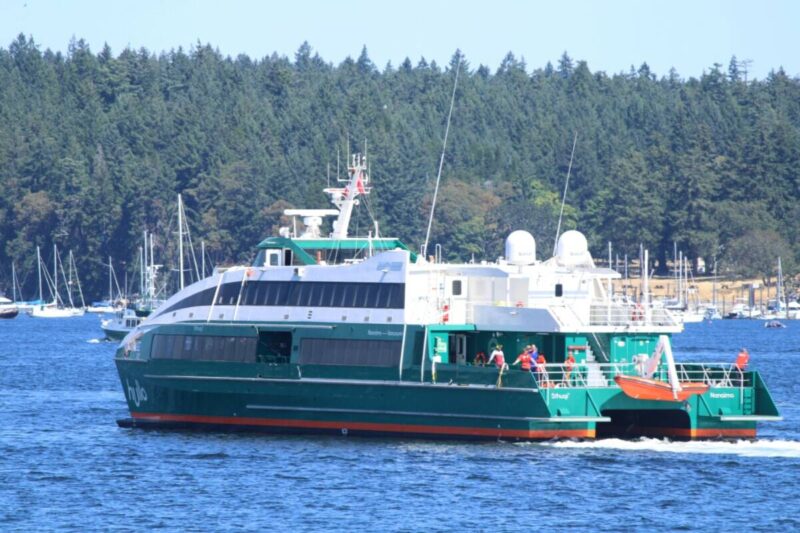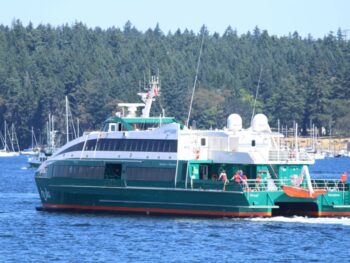Cyclists will now be able to bring bicycles aboard while travelling on Hullo ferries between Nanaimo and Vancouver,
Hullo announced that customers will now be able to bring non-electric pedal bicycles – up to two metres long and 22 kilograms – on board sailings. Four spots are available per sailing, with a one-bike limit per guest, and the bike spaces must reserved in advance. The service carries a surcharge of $30 one-way or $50 round-trip and is available on a first-come, first-served basis.
Hullo asks that cyclists arrive a minimum of 30 minutes before departure and will be responsible for loading their bicycles on the ferry on a specialized rack in the large luggage stowage area. Personal locks are not permitted.
The decision was made “in response to strong community demand for more active transportation options,” the company says.
“Our goal is always to make it easier, faster and friendlier to connect coasts, and adding bike capacity is another way to support sustainable travel options while enhancing the guest experience,” Ryan Dermody, Hullo interim CEO, said in an e-mail.
Xander France, Hullo director of sales and partnerships, said the company was pleased to accommodate bicycle riders.
“Cyclists are an important part of the tourism ecosystem on both sides of the strait,” France said in the e-mail. “From the amazing trail networks on Vancouver Island to the urban offerings in Vancouver, this new option creates seamless connections for recreation, daily commuting and community experiences.”
Hullo is not allowing e-bikes on its vessels.
In an e-mail, Transport Canada spokesperson Sau Sau Liu said there are safety issues, as lithium batteries, a component of e-bikes, are classified as a dangerous good.
“There is no regulatory ban on the marine carriage of lithium batteries, including those used for e-bikes, provided they can be transported safely in accordance with applicable requirements set out within … regulations,” she said. “Damaged or malfunctioning lithium batteries may pose a serious fire hazard, which is an even greater risk to safety in the confined vehicle space of a small ferry.”
Based on the rules, the vessel operator is responsible for determining the risk posed by potentially damaged cargo and enacting protocol to reduce risks, Liu said.
For more information on regulations, look under the FAQ tab at hullo.com.
Plan your adventures throughout the West Coast at westcoasttraveller.com and follow us on Facebook and Instagram @thewestcoasttraveller. And for the top West Coast Travel stories of the week delivered right to your inbox, sign up for our weekly Armchair Traveller newsletter!











 Beach art competition to take over Sooke’s Whiffin Spit Sept. 21
Beach art competition to take over Sooke’s Whiffin Spit Sept. 21